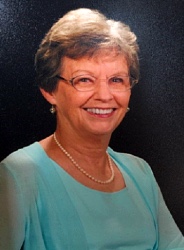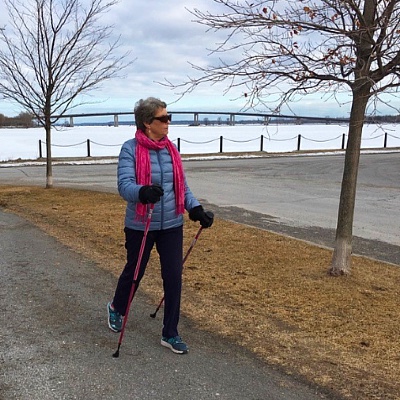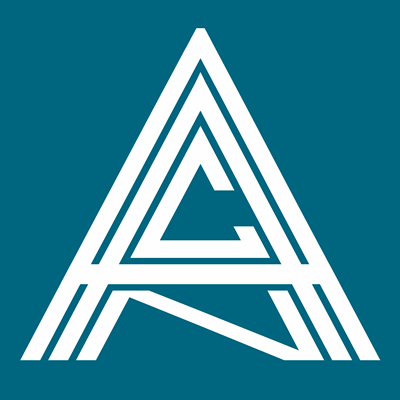
As an active, 74-year-old retired kindergarten teacher, I consider myself an engaged member of the community. Medically, I have keratoconus which is a progressive eye disease in which the normally round cornea thins and begins to bulge into a cone-like shape. This cone shape deflects light as it enters the eye on its way to the light-sensitive retina causing distorted vision, for which I have had three corneal transplants over the past 40-plus years culminating in an unsuccessful trabeculectomy for glaucoma. This has left me with no vision in one eye and a scleral lens in the other.
Having gradually adjusted to the lack of depth perception and minor balance issues, I was therefore not surprised when I seemed to develop vertigo a few years ago. I was careful getting into boats (we cottage on an island, so this is significant), started holding hand rails when possible, and got on with life.
In January 2018 after my flight home from BC, I experienced sudden onset deafness in one ear and secured an appointment with our ENT in Belleville. Also, after the flight to Europe in May 2018, I had balance issues and needed to take my husband's arm for the whole trip. The vertigo gradually settled down somewhat after we were home again.
After waiting for an appointment, waiting for an audiogram, waiting to have my ear cleaned out, taking time to cottage in the summer, and having an MRI, I was eventually diagnosed at the end of August 2018 with a small acoustic neuroma. It was not until November, when I had a second audiogram, that I was referred to Dr. Joseph Chen at Sunnybrook Health Sciences in Toronto.
My way of coping with the unknown is to learn all I can, so I turned to the search engines on the Internet looking for recognized national sites about acoustic neuromas. I soon learned that there was an acoustic neuroma association in Canada and, lo and behold, they would be holding a national symposium in Toronto at the end of September.
Living two hours away, I registered for the live webcast of the 2018 Symposium and sent a note. I immediately received a phone call from Carole Humphries, whose knowledgeable, warm and supportive manner, was exactly what I needed. Carole encouraged me to come to Toronto to experience the conference in person. The networking around our table, the fourteen pages of notes I took, the fact that the room was full of people with my symptoms, including some who had had surgery, plus the presenters making themselves available for brief chats during our refreshment breaks made this an invaluable day. I was able to introduce myself to Dr. Chen as a probable new patient and he immediately told me to discard the cane, use walking poles, and start walking, looking left and right continuously.

I gathered later that this was to help my brain adapt to receiving balance information from my one set of circular canals, rather than the usual two.
The conference also gave me the opportunity to speak to a vestibular therapist whose expertise I realized I needed.
Arriving home in full-blown overload, I emailed my physiotherapist and the manager/friend of the clinic I had used in the past. I learned that my present therapist was also qualified in vestibular therapy. I started immediately, as I continued the twice-a-week free VON seniors' exercise classes, which contain a balance component. Homework for the therapy became mandatory as I practised walking a straight line, gradually moving my arms, and eventually I expect to be able to change elevation and focus (by bending knees, raising heels, rotating shoulders, etc.). This is only one of the multitude of exercises I have learned in recent months. If I neglect to maintain them, my balance is compromised. The rewards are built in. If I work at it, I experience success. If not, . . .? I get right back to practising!
By mid November 2018, I had an appointment with Dr. Chen, who reassured me that my small (0.6 x 1.5 cm) neuroma only needs monitoring every couple of years with an MRI, which I can have done in my home town of Belleville.
I have "graduated" from vestibular therapy but am most welcome to return when I deem it necessary and will continue to participate in two VON one-hour classes per week.
I had also learned about the CROS hearing aids when at the ANAC conference. Messages from the deaf ear are transmitted wirelessly to the functioning ear, from which the info is sent to the brain. When home, I went to learn about hearing aids. After another audiogram I asked what would be appropriate for me. The answer was the CROS. These I received on December 4. I certainly hear more with them (they look just like any other hearing aids, i.e. inconspicuous), but I do get caught out by the lack of directionality. If in a crowded room I hear a voice calling my name, I must rotate, checking people's facial expressions, to tell who has spoken to me! Similarly, around a table of unfamiliar people at a meeting, I don't automatically know who spoke. It all just adds another layer to "paying attention" to make it all work.
Presently I don't have to explain to people that I have balance issues or hearing in one ear only because I've learned how to compensate as much as possible. This is my new normal and it's working for me.

